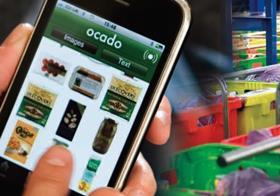
Doubts are circulating over the planned stock exchange flotation of internet grocery business Ocado, which is attempting to raise around £400m (€479m) from investors as part of an overall company valuation in excess of £1bn (€1.2bn).
Much of the uncertainty has arisen in the past 24 hours as a result of another UK company, North Sea oil business Fairfield Energy, abandoning its own planned flotation, for which it had been hoping to extract £330m (€395m) from investors, many of them the same ones targeted by Ocado.
In a statement, a spokesperson for Fairfield stated: 'In the light of market conditions, it has decided against proceeding with its initial public offering of shares and listing on the main market of the London Stock Exchange at this time.'
Private applications to purchase Ocado shares, which are currently being offered in the range of £2.00-2.75 (€2.40-3.29), must be submitted by midnight on Sunday, while institutional investors have until next Tuesday.
According to The Guardian newspaper, 'many' institutional investors have made it clear they have 'no intention' of buying shares in Ocado and have reportedly insisted the business is worth 'nowhere near £1bn'.
Although Ocado directors are banned from commenting on the planned flotation during the share sale period, a source close to the company told The Guardian Fairfield's failure was 'irrelevant' and criticised analysts for misreading the prospects of new online business models compared with traditional high street retailers.



